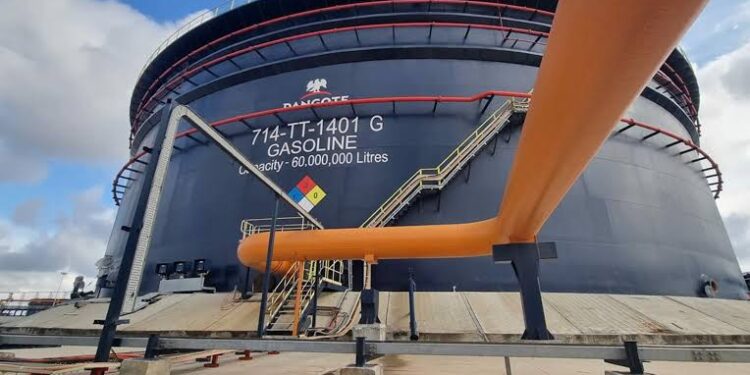The Dangote Refinery capacity upgrade is now underway, aiming to boost its output from 650,000 to 700,000 barrels per day. This strategic move reflects Aliko Dangote’s drive to position the Lekki-based refinery as Africa’s energy powerhouse.
During a recent facility tour, Alhaji Aliko Dangote told reporters that modifications at the refinery would conclude by Q4 2025. These upgrades are essential to achieving full-scale production and maximizing output.
He emphasized that the Residual Fluid Catalytic Cracking (RFCC) unit currently operates at 85 percent efficiency. The RFCC helps convert heavy crude oil into more valuable products like gasoline and diesel, a critical component in refining.
“Our RFCC is at 85 percent. The other departments have reached or even surpassed full capacity,” Dangote noted.
The billionaire industrialist clarified that the refinery couldn’t reach 100 percent this year due to the ongoing upgrade. However, the goal remains to push production to 700,000 BPD once all modifications are finalized.
Between June and July 2025, the refinery imported 19 million barrels of crude from the United States, which now supplies 55 percent of its feedstock.
“In July alone, we bought 10 million barrels of U.S. crude, enough to cover over half of our production needs,” Dangote revealed.
Reflecting on the $20 billion refinery’s journey, Dangote said he chose to build it after his 2007 attempt to buy Nigeria’s state refineries was blocked. That rejection fueled his resolve to create one of the world’s largest single-train refineries.
“If I had known the challenges ahead, I might never have started. But we proved nothing is impossible,” he remarked.
He admitted that as the project progressed, the group faced a critical choice: give up or push through. Dangote chose to continue, aiming to reduce Africa’s reliance on imported fuels.
According to him, only Algeria and Libya are self-sufficient in refining. Every other African country remains dependent on fuel imports, making the Dangote Refinery’s capacity upgrade a game-changer for the continent’s energy future.
“Mass importation is used to suppress local industries. That’s why our refinery project was so urgent,” he stated.
Despite similar projects failing in countries like South Africa, Dangote expressed pride in the risk his group took and their success in executing the massive project




































